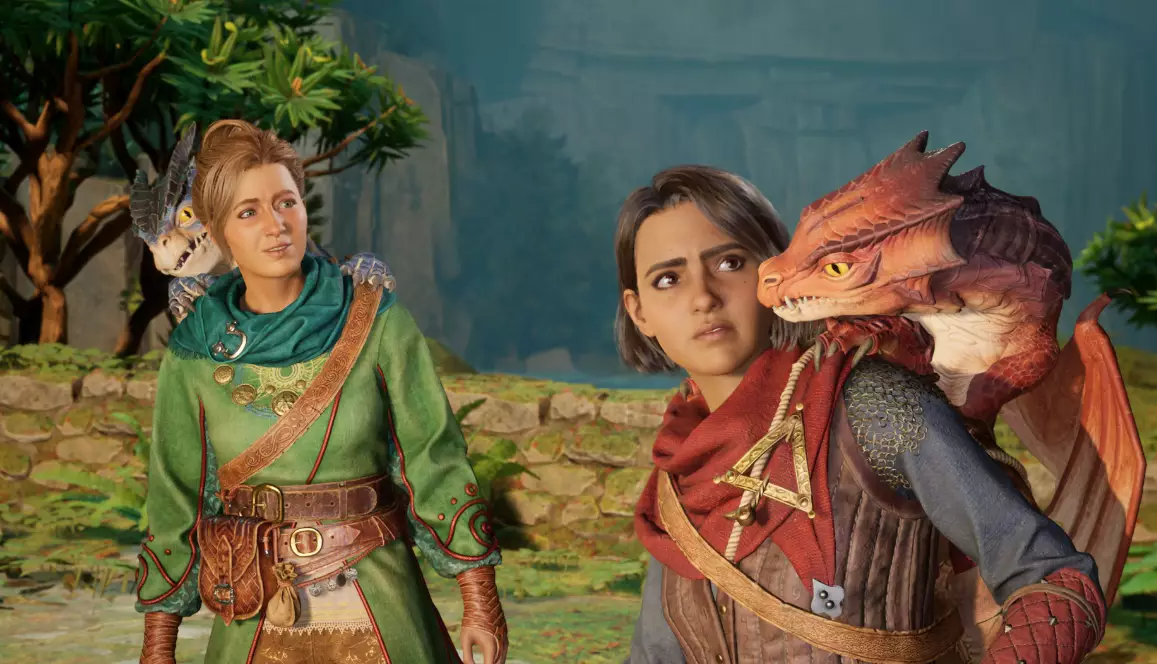Hazelight Studios is ready to unveil their latest offering, *Split Fiction*, coming March and following the immense success of *It Takes Two*, which sold over 20 million copies. This new title presents an intriguing narrative focused on characters Mio and Zoe, who confront a machine that unethically appropriates the creative work of writers. This premise places the game amid a broader, increasingly urgent conversation regarding artificial intelligence (AI) and its implications across not only gaming but various creative sectors.
Josef Fares, the idiosyncratic leader of Hazelight, has made headlines not only for his games but also for his outspoken nature. In an interview with VGC, he shared his nuanced perspective on the challenges and opportunities that AI presents. Fares expressed a mixture of excitement and trepidation about the technology, stating, “It’s both scary and very exciting.” This duality is a recurring theme among industry veterans as they grapple with the transformative effects of AI on creative processes.
Fares emphasizes the necessity for the gaming industry to adapt and work alongside AI rather than resisting it. His comment, “If it’s part of the industry we should see how to implement it to see how we get better games,” captures an essential sentiment many game developers share. It highlights an acceptance of AI not merely as a tool but as a transformative element that can enhance gaming experiences. However, this adaptation comes with its caveats, particularly when it comes to job security within the industry.
The implications of AI for employment in the video game sector are complex and often polarized. Reports suggest that while a majority of game developers have begun incorporating AI into their workflows, concerns loom regarding potential job losses. Electronic Arts recognizes that AI might lead to immediate job reductions but maintains a more optimistic outlook, forecasting an eventual increase in employment opportunities stemming from new roles created by the technology.
Contrastingly, viewpoint from within the industry also posits caution. Strauss Zelnick of Take-Two Interactive described AI as an “oxymoron,” emphasizing the irreplaceable value of human creativity in game development. His assertion underlines the belief that technology must uplift, not supplant, the human element in gaming. Fares himself acknowledges the potential pitfalls of AI’s rise, asserting that it could yield both detrimental and beneficial outcomes. This duality extends to the ongoing conversations surrounding labor disputes in the gaming world, particularly among voice actors.
As game voice actors actively engage in strike negotiations, the topic of AI has emerged as a significant sticking point. Veteran voice actor Jennifer Hale has articulated her concerns, labeling the issue as “existential” to the future of performance within the industry. Her sentiments highlight a growing trepidation among performers that AI could someday mimic their voices or performances, leading to a devaluation of their craft.
The convergence of artistic integrity and technological advancement makes for a gripping narrative. While these performers advocate for fair compensation and recognition, the looming shadow of AI complicates this discourse. Their struggle underscores the broader tension within creative industries as they navigate the intersection of innovation and job preservation.
As the development landscape shifts toward greater involvement of AI, the gaming industry stands at a crossroads. The sentiments shared by Fares illuminate an escalating awareness that AI will indeed be a significant force—potentially exceeding the impact of the internet itself. While there is still a long path ahead before AI can be seamlessly integrated into game development processes, it is clear that the dialogue around these technologies is only just beginning.
The future of gaming is thrilling yet fraught with uncertainty. Embracing AI’s potential while adequately safeguarding human talent will require careful consideration, collaborative conversation, and innovative approaches. As *Split Fiction* prepares to launch, it serves as both a testament to creative storytelling and a catalyst for important discussions about the role of technology in art. As players dive into the narrative, they are invited not only to enjoy the game but also to ponder the manifold implications of a rapidly evolving digital frontier.


Leave a Reply